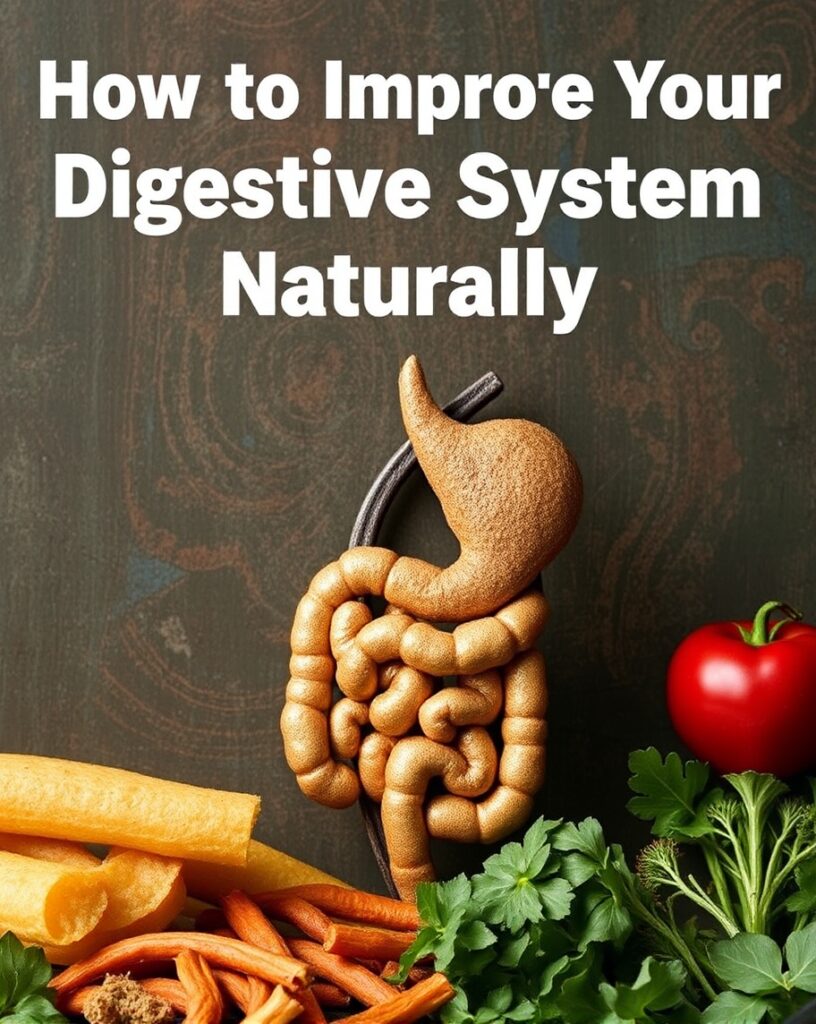The Importance of Gut Health: How to Improve Your Digestive System Naturally

Introduction
In recent years, the conversation surrounding health has increasingly focused on the gut, often referred to as the “second brain.” Gut health influences not only digestion but also immunity, mental health, and overall well-being. With issues like bloating, indigestion, and food intolerances becoming more common, understanding how to maintain a healthy digestive system is more important than ever. In this article, we’ll explore the importance of gut health and provide natural ways to improve your digestive system.

What Is Gut Health and Why Is It Important?
Gut health refers to the balance of microorganisms living in the digestive tract. A healthy gut is essential for proper digestion, nutrient absorption, and waste elimination. But that’s not all—the gut plays a key role in:
- Immune function: Around 70% of the immune system resides in the gut.
- Mental health: The gut-brain axis is a communication network between your gut and brain, affecting mood and cognitive function.
- Hormonal balance: Gut bacteria impact hormone production, including serotonin, often called the “happiness hormone.”
When your gut is out of balance, it can lead to a range of issues, including irritable bowel syndrome (IBS), autoimmune conditions, and even mental health disorders like anxiety and depression.
Signs of Poor Gut Health
Recognizing the signs of poor gut health is crucial for addressing digestive issues early. Some common symptoms include:
- Bloating and gas
- Chronic diarrhea or constipation
- Food intolerances or sensitivities
- Fatigue or low energy
- Frequent colds or infections

If you’re experiencing any of these symptoms, your gut might be in need of some attention.
How to Improve Gut Health Naturally
While gut health supplements and medications are available, natural remedies offer a holistic approach. Below are proven methods to help restore and maintain a healthy gut:
1. Incorporate Probiotics and Prebiotics
- Probiotics: These are beneficial bacteria that help balance the gut microbiome. Foods like yogurt, kefir, and sauerkraut are rich in probiotics.
- Prebiotics: Prebiotics are fibers that feed the good bacteria in your gut. Foods high in prebiotics include garlic, onions, bananas, and oats.
2. Eat a Fiber-Rich Diet
Fiber is essential for healthy digestion. It promotes regular bowel movements and helps feed good bacteria in the gut. Focus on eating more fruits, vegetables, legumes, and whole grains to ensure you’re getting enough fiber.

3. Stay Hydrated
Water is vital for digestion as it helps break down food and aids in nutrient absorption. Drinking enough water throughout the day ensures that your digestive system functions properly.
4. Reduce Stress Levels
Chronic stress can negatively impact your gut health. When you’re stressed, your body enters “fight or flight” mode, which slows down digestion and affects gut function. Incorporate stress-reducing techniques like yoga, meditation, or deep breathing to maintain a healthy gut-brain connection.
5. Limit Processed Foods and Sugar
Processed foods and high sugar intake can disrupt the balance of bacteria in your gut, leading to an overgrowth of harmful bacteria. Try to limit your consumption of junk food, sugary drinks, and refined carbs.
6. Get Regular Exercise
Physical activity is not just good for your heart and muscles; it’s also beneficial for your gut. Exercise promotes bowel regularity and supports the growth of healthy gut bacteria. Aim for at least 30 minutes of moderate exercise each day.
Foods That Support a Healthy Gut
Certain foods are particularly beneficial for gut health. Here are a few you should consider adding to your diet:
- Fermented Foods: These include kimchi, miso, and kombucha. They contain probiotics that can improve the gut microbiome.
- Leafy Greens: Spinach, kale, and other greens are high in fiber and nutrients that support healthy digestion.
- Ginger: Known for its anti-inflammatory properties, ginger can soothe the digestive tract and improve gut motility.
- Bone Broth: Packed with collagen and amino acids, bone broth helps heal and maintain the gut lining.
The Gut-Brain Connection
The gut-brain connection is a hot topic in health discussions today. Research shows that gut health can directly impact mental health. Conditions like anxiety, depression, and even cognitive decline have been linked to an unhealthy gut. Maintaining a balanced gut microbiome is essential not only for physical health but also for mental well-being.
Common Myths About Gut Health
There are several misconceptions surrounding gut health. Let’s debunk a few:
- Myth 1: Only people with digestive issues need to worry about gut health.
- Fact: Gut health is important for everyone, not just those with IBS or other digestive disorders.
- Myth 2: You only need probiotics if you have poor digestion.
- Fact: Probiotics can benefit anyone by supporting a healthy balance of bacteria in the gut.

Conclusion

Maintaining a healthy gut is about more than just digestion it’s essential for overall well-being. By incorporating probiotics, eating a fiber-rich diet, staying hydrated, and managing stress, you can improve your digestive system naturally. Remember, the state of your gut influences not only your body but also your mind. Prioritizing gut health is a key step toward living a healthier, more balanced life.













Thank u for your effort. This content will help much peoples.
Wow tons information great help , that will help us too much
A lot of good information here, thank you.
Thank you for taking the time to share your beautiful thoughts.
http://www.bizbuzzup.com